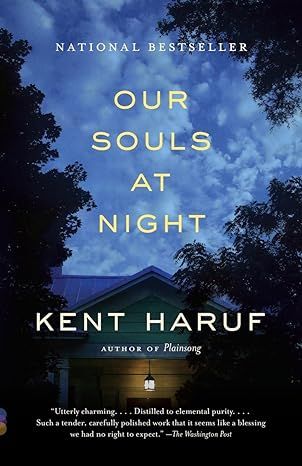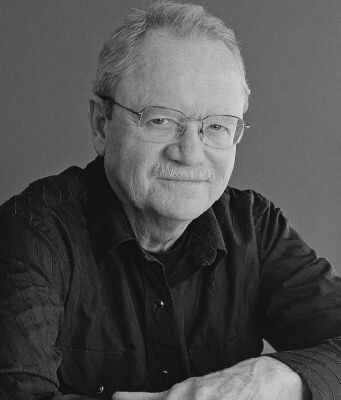Our Souls at Night (Vintage Contemporaries)
4
-
18,611 ratings
NATIONAL BESTSELLER • A spare yet eloquent, bittersweet yet inspiring story of a man and a woman who, in advanced age, come together to wrestle with the events of their lives and their hopes for the imminent future.
In the familiar setting of Holt, Colorado, home to all of Kent Haruf's inimitable fiction, Addie Moore pays an unexpected visit to a neighbor, Louis Waters.
Her husband died years ago, as did his wife, and in such a small town they naturally have known of each other for decades; in fact, Addie was quite fond of Louis's wife. His daughter lives hours away, her son even farther, and Addie and Louis have long been living alone in empty houses, the nights so terribly lonely, especially with no one to talk with. But maybe that could change?
As Addie and Louis come to know each other better--their pleasures and their difficulties--a beautiful story of second chances unfolds, making Our Souls at Night the perfect final installment to this beloved writer's enduring contribution to American literature.
Kindle
$12.99
Available instantly
Audiobook
$0.00
with membership trial
Hardcover
$14.02
Paperback
$12.88
Ships from
Amazon.com
Payment
Secure transaction
ISBN-10
1101911921
ISBN-13
978-1101911921
Print length
192 pages
Language
English
Publisher
Vintage
Publication date
June 27, 2016
Dimensions
5.16 x 0.57 x 7.95 inches
Item weight
6.8 ounces
Product details
ASIN :
B00PP3DNDI
File size :
1175 KB
Text-to-speech :
Enabled
Screen reader :
Supported
Enhanced typesetting :
Enabled
X-Ray :
Enabled
Word wise :
Enabled
Editorial Reviews
A BEST BOOK OF THE YEAR: The Boston Globe, St. Louis Post-Dispatch, and The Denver Post
“More Winesburg that Mayberry, Holt and its residents are shaped by physical solitude and emotional reticence. . . . Haruf's fiction ratifies ordinary, nonflashy decency, but he also knows that even the most placid lives are more complicated than they appear from the outside. . . . The novel is a plainspoken, vernacular farewell.” —Catherine Holmes, The Charleston Post and Courier
“A marvelous addition to his oeuvre. . . . spare but eloquent, bittersweet yet hopeful.” —Kurt Rabin, The Fredericksburg Freelance-Star
“Lateness—and second chances—have always been a theme for Haruf. But here, in a book about love and the aftermath of grief, in his final hours, he has produced his most intense expression of that yet. . . . Packed into less than 200 pages are all the issues late life provokes.” —John Freeman, The Boston Globe
“A fitting close to a storied career, a beautiful rumination on aging, accommodation, and our need to connect. . . . As a meditation on life and forthcoming death, Haruf couldn’t have done any better. He has given us a powerful, pared-down story of two characters who refuse to go gentle into that good night.” —Lynn Rosen, The Philadelphia Enquirer
“A delicate, sneakily devastating evocation of place and character. . . . Haruf’s story accumulates resonance through carefully chosen details; the novel is quiet but never complacent.” —The New Yorker
“Elegiac, mournful and compassionate. . .a triumphant end to an inspiring literary career [and] a reminder of a loss on the American cultural landscape, as well as a parting gift from a master storyteller.” —William J. Cobb, The Dallas Morning News
“A fine and poignant novel that demonstrates that our desire to love and to be loved does not dissolve with age. . . . The story speeds along, almost as if it's a page-turning mystery.” —Joseph Peschel, The St. Louis Post-Dispatch
“By turns amusing and sad, skipping-down-the-sidewalk light and pensive. . . . I recommend reading it straight through, then sitting in quiet reflection of beautiful literary art.” —Fred Ohles, The Lincoln Journal Star
“Haruf is never sentimental, and the ending—multiple twists packed into the last twenty pages—is gritty, painful and utterly human. . . . His novels are imbued with an affection and understanding that transform the most mundane details into poetry. Like the friendly light shining from Addie's window, Haruf’s final novel is a beacon of hope; he is sorely missed.” —Francesca Wade, Financial Times
“Haruf was knows as a great writer and teacher whose work will endure. . . . The cadence of this book is soft and gentle, filled with shy emotion, as tentative as a young person's first kiss—timeless in its beauty. . . . Addie and Louis find a type of love that, as our society ages, ever more people in the baby boom generation may find is the only kind of love that matters.” —Jim Ewing, The Jackson Clarion-Ledger
“There is so much wisdom in this beautifully pared-back and gentle book. . . a small, quiet gem, written in English so plain that it sparkles.” —Anne Susskind, The Sydney Morning Herald
“His great subject was the struggle of decency against small-mindedness, and his rare gift was to make sheer decency a moving subject. . . . [This] novel runs on the dogged insistence that simple elements carry depths, and readers will find much to be grateful for.” —Joan Silber, The New York Times Book Review
“In a fitting and gorgeous end to a body of work that prizes resilience above all else, Haruf has bequeathed readers a map charting a future that is neither easy nor painless, but it’s also not something we have to bear alone.” —Esquire
“Utterly charming [and] distilled to elemental purity. . . . such a tender, carefully polished work that it seems like a blessing we had no right to expect.” —Ron Charles, The Washington Post
“Haruf spent a life making art from our blind collisions, and Our Souls at Night is a fitting finish.” —John Reimringer, The Minneapolis Star Tribune
“Haruf once again banishes doubts. Our souls can surprise us. Beneath the surface of reticent lives—and of Haruf’s calm prose—they prove unexpectedly brave.” —Ann Hulbert, The Atlantic
“Blunt, textured, and dryly humorous. . . this quietly elegiac novel caps a fine, late-blooming and tenacious writing career. . . . Haruf’s gift is to make hay of the unexpected, and it feels like a mercy. . . . This is a novel for just after sunset on a summer’s eve, when the sky is still light and there is much to see, if you are looking.” —Wingate Packard, The Seattle Times
“A parting gift [and] a reminder of how profoundly we will miss Holt and its people, and Kent Haruf's extraordinary writing.” —Sandra Dallas, The Denver Post
“Short, spare and moving...Our Souls at Night is already creating a stir.” —Jennifer Maloney, The Wall Street Journal
Sample
1
And then there was the day when Addie Moore made a call on Louis Waters. It was an evening in May just before full dark.
They lived a block apart on Cedar Street in the oldest part of town with elm trees and hackberry and a single maple grown up along the curb and green lawns running back from the sidewalk to the two-story houses. It had been warm in the day but it had turned off cool now in the evening. She went along the sidewalk under the trees and turned in at Louis’s house.
When Louis came to the door she said, Could I come in and talk to you about something?
They sat down in the living room. Can I get you something to drink? Some tea?
No thank you. I might not be here long enough to drink it. She looked around. Your house looks nice.
Diane always kept a nice house. I’ve tried a little bit.
It still looks nice, she said. I haven’t been in here for years.
She looked out the windows at the side yard where the night was settling in and out into the kitchen where there was a light shining over the sink and counters. It all looked clean and orderly. He was watching her. She was a good-looking woman, he had always thought so. She’d had dark hair when she was younger, but it was white now and cut short. She was still shapely, only a little heavy at the waist and hips.
You probably wonder what I’m doing here, she said.
Well, I didn’t think you came over to tell me my house looks nice.
No. I want to suggest something to you.
Oh?
Yes. A kind of proposal.
Okay.
Not marriage, she said.
I didn’t think that either.
But it’s a kind of marriage-like question. But I don’t know if I can now. I’m getting cold feet. She laughed a little. That’s sort of like marriage, isn’t it.
What is?
Cold feet.
It can be.
Yes. Well, I’m just going to say it.
I’m listening, Louis said.
I wonder if you would consider coming to my house sometimes to sleep with me.
What? How do you mean?
I mean we’re both alone. We’ve been by ourselves for too long. For years. I’m lonely. I think you might be too. I wonder if you would come and sleep in the night with me. And talk.
He stared at her, watching her, curious now, cautious.
You don’t say anything. Have I taken your breath away? she said.
I guess you have.
I’m not talking about sex.
I wondered.
No, not sex. I’m not looking at it that way. I think I’ve lost any sexual impulse a long time ago. I’m talking about getting through the night. And lying warm in bed, companionably. Lying down in bed together and you staying the night. The nights are the worst. Don’t you think?
Yes. I think so.
I end up taking pills to go to sleep and reading too late and then I feel groggy the next day. No use at all to myself or anybody else.
I’ve had that myself.
But I think I could sleep again if there were someone else in bed with me. Someone nice. The closeness of that. Talking in the night, in the dark. She waited. What do you think?
I don’t know. When would you want to start?
Whenever you want to. If, she said, you want to. This week.
Let me think about it.
All right. But I want you to call me on the day you’re coming if that happens. So I’ll know to expect you.
All right.
I’ll be waiting to hear from you.
What if I snore?
Then you’ll snore, or you’ll learn to quit.
He laughed. That would be a first.
She stood and went out and walked back home, and he stood at the door watching her, this medium-sized seventy-year-old woman with white hair walking away under the trees in the patches of light thrown out by the corner street lamp. What in the hell, he said. Now don’t get ahead of yourself.
2
The next day Louis went to the barber on Main Street and had his hair cut short and neat, a kind of buzz cut, and asked the barber if he still shaved people and the barber said he did, so he got a shave too. Then he went home and called Addie and said, I’d like to come over tonight if that’s still all right.
Yes, it is, she said. I’m glad.
He ate a light supper, just a sandwich and a glass of milk, he didn’t want to feel heavy and laden in her bed, and then he took a long hot shower and scrubbed himself thoroughly. He trimmed his fingernails and toenails and at dark he went out the back door and walked up the back alley carrying a paper sack with his pajamas and toothbrush inside. It was dark in the alley and his feet made a rasping noise in the gravel. A light was showing in the house across the alley and he could see the woman in profile there at the sink in the kitchen. He went on into Addie Moore’s backyard past the garage and the garden and knocked on the back door. He waited quite a while. A car drove by on the street out front, its headlights shining. He could hear the high school kids over on Main Street honking their horns at one another. Then the porch light came on above his head and the door opened.
What are you doing back here? Addie said.
I thought it would be less likely for people to see me.
I don’t care about that. They’ll know. Someone will see. Come by the front door out on the front sidewalk. I made up my mind I’m not going to pay attention to what people think. I’ve done that too long—all my life. I’m not going to live that way anymore. The alley makes it seem we’re doing something wrong or something disgraceful, to be ashamed of.
I’ve been a schoolteacher in a little town too long, he said. That’s what it is. But all right. I’ll come by the front door the next time. If there is a next time.
Don’t you think there will be? she said. Is this just a one-night stand?
I don’t know. Maybe. Minus the sex part of that, of course. I don’t know how this will go.
Don’t you have any faith? she said.
In you, I do. I can have faith in you. I see that already. But I’m not sure I can be equal to you.
What are you talking about? How do you mean that?
In courage, he said. Willingness to risk.
Yes, but you’re here.
Read more
About the authors
Kent Haruf
Haruf was born in Pueblo, Colorado, the son of a Methodist minister. He graduated with a BA from Nebraska Wesleyan University in 1965, where he would later teach, and earned an MFA from the Iowa Writers' Workshop at the University of Iowa in 1973.
Before becoming a writer, Haruf worked in a variety of places, including a chicken farm in Colorado, a construction site in Wyoming, a rehabilitation hospital in Denver, a hospital in Phoenix, a presidential library in Iowa, an alternative high school in Wisconsin, as an English teacher with the Peace Corps in Turkey, and colleges in Nebraska and Illinois. He lived with his wife, Cathy, in Salida, Colorado until his death in 2014. He had three daughters from his first marriage.
All of Haruf's novels take place in the fictional town of Holt, in eastern Colorado. Holt is based on Yuma, Colorado, one of Haruf's residences in the early 1980s. His first novel, The Tie That Binds (1984), received a Whiting Award and a special Hemingway Foundation/PEN citation. Where You Once Belonged followed in 1990. A number of his short stories have appeared in literary magazines.
Plainsong was published in 1999 and became a U.S. bestseller. Verlyn Klinkenborg called it ""a novel so foursquare, so delicate and lovely, that it has the power to exalt the reader."" Plainsong won the Mountains & Plains Booksellers Award and the Maria Thomas Award in Fiction and was a finalist for the National Book Award for Fiction.
Eventide, a sequel to Plainsong, was published in 2004. Library Journal described the writing as ""honest storytelling that is compelling and rings true."" Jonathan Miles saw it as a ""repeat performance"" and ""too goodhearted.""
On November 30, 2014, Haruf died at his home in Salida, Colorado at the age of 71. He died of interstitial lung disease.
Bio from Wikipedia, the free encyclopedia.
Read more
Reviews
Customer reviews
4 out of 5
18,611 global ratings
Larry Hoffer
5
It's never too late for a second chance at happiness...
Reviewed in the United States on July 1, 2015
Verified Purchase
Few authors can captivate with simple, straightforward, moving storytelling as well as Kent Haruf did. I've read every one of his novels, and each time I finished one, I was amazed by the power of his writing and the impact his characters had. I definitely felt the same way upon finishing his last novel, Our Souls at Night. In less than 200 pages, Haruf made me think and made me feel.
In this book, Haruf returned to the small town of Holt, Colorado, where his novel Plainsong took place. One day, 70-year-old widow Addie Moore goes to visit her widowed neighbor, Louis Waters. The two have always known each other, but were never friends. But that doesn't stop Addie from asking Louis a difficult question: would he be willing to come over to her house one night and sleep in her bed, and perhaps talk?
The idea throws Louis for a bit of a loop, but ultimately his curiosity and his desire for companionship wins out. It isn't long before the two develop a strong friendship, perhaps tinged with love and a gratitude for the sort of second chance each is giving the other. Of course, the town is ablaze with gossip about the two, despite the fact that both are widowed and in their 70s. And it isn't long before Louis' daughter and Addie's son try and convince their parents that this type of thing just isn't done, no matter what kind of comfort they bring to each other.
"But that's the main point of this being a good time. Getting to know somebody well at this age. And finding out you like her and discovering you're not just all dried up after all."
Louis and Addie spend their nights talking about their lives—their happy and sad moments, their regrets, their unfulfilled wishes. They discuss their relationships with their late spouses and their children. They talk about life. But most of all, they revel in each other's company, and they don't care what their fellow townspeople have to say about their relationship. And when Addie's grandson comes to stay with her for the summer, she sees Louis in a different light, and he gets the opportunity to be the father he wished he could have been to his own daughter.
I thought this was such a beautiful book, hopeful and even a little emotional. I honestly didn't understand everyone's objections to Louis and Addie's relationship, given their age and the fact that they were both widowed, and people's reactions, particularly Addie's son's, were the only thing that bothered me about this story. Louis and Addie are such wonderful characters and their story proves that sometimes it's worth taking a risk in order to find friendship and love.
I wasn't aware that Haruf died at the end of 2014, and that discovery saddens me a great deal. I'd encourage you to pick up Our Souls at Night as well as all of his other novels, and get a glimpse of his tremendous talent. The literary world lost an artist, but his beautiful work will live on, lucky for us.
Read more
2 people found this helpful
J. Lapin Zell
5
Heartwarming, Eloquent and Tender Story
Reviewed in the United States on January 25, 2016
Verified Purchase
I’ll come right out and say it. This book is one of the best books I’ve read in the last few years. I was hooked from page one and finished it in two sittings. I was torn between not wanting the story to end and being unable to put it down, wanting to know how the story ends.
It’s a short and very powerful read that has superb pacing and character development. It is the tender and poignant story of Addie Moore and Louis Waters, two widowed people in their senior years who are neighbors and both extremely lonely. The story opens simply and plainly, with Addie walking over to Louis’s house and making what, to him (and most people) an unusual proposition that would cure the loneliness they both feel, especially in the evenings. She proposes that he comes over to her house some nights, to spend the night in her bed with her and just talk, to help them both get through the lonely nights. She was not suggesting anything sexual and she tells him so; rather just lying in bed with another person to talk about themselves, their thoughts, their hopes and their dreams.
It works out quite well for a while, until word gets around that Louis is going over to Addie’s house at night and leaving in the mornings. Addie and Louis take the right approach by ignoring and not caring about the gossip and the judgmental stares from neighbors. They just go on doing something that brings them both much pleasure and contentment, until it becomes personal and Addie’s son (who had previously brought Addie’s young grandson over to Addie’s house to stay for the summer) becomes insistent that they stop seeing each other. What transpires after that is what this story is really about: people judging other people’s lives and the devastating effects that can have. Addie and Louis had developed a very close relationship with each other as well as with Addie’s grandson and this delicate and caring relationship among the three of them is threatened by the ensuing events.
At first, I must admit that I was put off by reading the dialogue without quotation marks. I found it awkward initially, but it took me very little time to adjust to it because it just seemed to fit the in the telling of the story somehow and is appropriate for the way the author chose to deliver the story to his readers. This technique served to show the characters’ thoughts in a straightforward manner and the dialogue itself has a simple clarity that is refreshing to read and rarely seen in contemporary writing.
This heartwarming story brought me close to tears several times. It’s an honest and unassuming statement about how people judge things they do not understand, the effects that can cause, and how two people can find exactly what they need in each other.
Read more
32 people found this helpful
Jay Gilbertson
4
For Anyone Planning to Grow Old---Stunning!
Reviewed in the United States on June 30, 2016
Verified Purchase
Our Souls at Night By Kent Haruf
Reviewed by Jay Gilbertson
This novel is barely 180 pages long. You can read it in one swoop. But don’t. Relish it. Take slow, easy bites; sit alone and be with author Haruf’s words. They’re gems. Each one selected as carefully as one gets dressed for church or a party or a funeral. I had the pleasure of listening to a talk by local author Nickolas Butler and he had this book in his hands as he took the podium. That was enough validation to read this for me. Need more? Haruf is the author of Benediction, Eventide, Plainsong, The Tie That Binds and Where you Once Belonged. Not only is the story totally and completely compelling, it is, but the writing. Well, here, have a chew on this; “That’s sort of like marriage, isn’t it.” “What is?” “Cold Feet.” “It can be.” “Yes. Well, I’m just going to say it.” “I’m listening,” Louis said. “I wonder if you would consider coming to my house sometimes to sleep with me.” “What? How do you mean?” “I mean we’re both alone. We’ve been by ourselves for too long. For years. I’m lonely. I think you might be too. I wonder if you would come and sleep in the night with me. And talk.” There. That’s what the entire tale is built around. That question. Think about it. All the elderly that are shuffling through big, empty houses on streets like yours and mine. Maybe you know someone like Addie Moore or Louis Waters. We all do. They sit alone in movie theaters and are put in the back, if they even go, of restaurants. You see them at the mall walking in circles. Usually an older woman, but there are a lot of men out there too. Makes you wonder. And of course author Haruf takes it many steps further, this request to sleep together has ramifications. First, one of Addie’s kids has a boy that needs taking care of. A messy relationship isn’t panning out. The boy comes to live with Addie for a while. Add in gossip from nosey neighbors and you have a storm brewing out of, what you first imagined to be no one’s business but two old people trying not to be so alone. Yet, for a while, they find each other. “You’re being too hard on yourself again. Addie said. Who does ever get what they want? It doesn’t seem to happen to many of us if any at all. It’s always two people bumping against each other blindly, acting out of old ideas and dreams and mistaken understandings. Except I still say that this isn’t true of you and me. Not right now. Not today.” There is a hitch, of course. I’m not going to spoil it for you because I know you’re going to read this. It should be on every book club’s list as this is a subject that is going to get more and more discussion as all the Baby Boomers out there find themselves in a very similar situation as Addie and Louis. What will you do?
• Email; jay@jaygilbertson.com
Read more
7 people found this helpful
The Garden Interior
4
“Lives of Quiet Desperation”
Reviewed in the United States on March 9, 2016
Verified Purchase
It was the great Henry David Thoreau who said, depressingly but tellingly, “The mass of men lead lives of quiet desperation. What is called resignation is confirmed desperation.” The older I become, the more convinced of that I am; and I think too that it applies more and more to people as they age, if they do not age particularly well. Here is a book that, said simply, is about two people who seek to break out of their quiet desperation, and about what happens to them when they do. The main characters are Addie and Louis, both in their seventies, both widowed and both acutely lonely. They are neighbors in the small town of Holt, on Colorado’s eastern plains. One night, Addie goes over to visit Louis and complains that she is having persistent trouble sleeping at night. She is lonely and misses the human contact, and tactile togetherness, of being married. She has a simple proposition: will he sleep with her, just sleep, so they can keep each other company and cure their loneliness and insomnia? He thinks about it and agrees, and there begins their unusual friendship and, eventually, romance. The small town is scandalized, assuming carnal doings. And so are their kids: Addie has a son in Grand Junction and Louis has a daughter in Colorado Springs. I read this book on vacation in Colorado Springs, and I was raised in Grand Junction, so it resonated particularly with me. When the kids find out that the sleepovers are innocent, they are even more outraged at the impropriety of such unconventional relations and implore them to stop and behave themselves. The book sustains an almost oppressive atmospheric tension, as if you are waiting for a thunderous storm to break on the plains on a hot summer day; you know unhappiness is coming, you just don’t know in what form. When it finally arrives, it is heart-breaking and the struggle for human contact and happiness goes on, bravely, as these two likeable characters try to escape lives of quiet desperation and the forces that want to oppress them: old age, society, family. It is a sort of inverted Romeo and Juliet, but with adults in modern times. It is a droll conceit, and it has been a long time since small town mores were so nicely exposed and skewered. But the reason this book is so popular is that it is imbued with a lovely humaneness and a touching empathy for characters near the end of their lives trying to make the most of life despite a host of difficulties oppressing them. This book has the same DNA as Wendell Barry’s superb "Jayber Crow" and David Guterson’s wonderful "East of the Mountains", both of which I loved. In "Our Souls at Night," we learn to love brave people making unconventional choices despite the narrowing and telescoping of freedoms and options in the later years of life. It is a wonderful journey.
Read more
21 people found this helpful
Christi Cassel
3
A book that would be most appreciated by a "mature" reader
Reviewed in the United States on February 1, 2016
Verified Purchase
3.5/5
It’s no secret that I like short books. When done well, they are concise and compact. There’s no added filler. There are no long, flowery descriptions. They make you think a little bit more. They pack a punch.
This book is a great example of a short book done well. Each conversation is pared down to its essence and lets you know a something more about Addie or Louis, their circumstances, their personalities, and their motivations. Haruf’s word choices and syntax decisions (like the opening sentence: “And then there was the day when Addie Moore made a call on Louis Waters.”) encourage you to think beyond what is written on the page.
But this book is not without its faults. The dialogue annoyed me, because Haruf doesn’t use quotation marks. Ever. The purposeful and blatant failure to follow basic rules of punctuation is one of my MASSIVE pet peeves. Quotation marks make dialogue much easier to read, people. I say, “Let’s all agree to use them. Please and thank you.”
When my aunt recommended this book, she warned that it is “probably a book for old folks,” and she’s absolutely right. That’s not to say that “young folks” (I flatter/fool myself by suggesting that I belong to that category anymore) can’t appreciate or enjoy it. I just think it would be more touching for those with a bit more life experience. It deals with subject matter (loneliness and companionship as you get older, reflecting on a life’s worth of experiences, dealing with the deaths of people close to you, making choices and sacrifices for your family) that would be particularly poignant if you had dealt with (or were in the position to deal with) similar stuff.
This book reminded me in many ways of Julian Barnes’s The Sense of an Ending (which, interestingly, I recommended to my aunt a couple years ago): it is concise, not very uplifting, reflects on age/growing older, and would not be appreciated as much by youngsters. If you enjoyed The Sense of an Ending, you should add this book to your TBR list posthaste (and vice versa).
Read more
4 people found this helpful
Best Sellers

The Great Alone: A Novel
4.6
-
152,447
$5.49

The Four Winds
4.6
-
156,242
$9.99

Winter Garden
4.6
-
72,838
$7.37

The Nightingale: A Novel
4.7
-
309,637
$8.61

Steve Jobs
4.7
-
24,596
$1.78

Iron Flame (The Empyrean, 2)
4.6
-
164,732
$14.99

A Court of Thorns and Roses Paperback Box Set (5 books) (A Court of Thorns and Roses, 9)
4.8
-
26,559
$37.99

Pretty Girls: A Novel
4.3
-
88,539
$3.67

The Bad Weather Friend
4.1
-
34,750
$12.78

Pucking Around: A Why Choose Hockey Romance (Jacksonville Rays Hockey)
4.3
-
41,599
$14.84

Start with Why: How Great Leaders Inspire Everyone to Take Action
4.6
-
37,152
$9.99

Tomorrow, and Tomorrow, and Tomorrow: A novel
4.4
-
95,875
$13.99

Weyward: A Novel
4.4
-
27,652
$11.99

Tom Lake: A Reese's Book Club Pick
4.3
-
37,302
$15.74

All the Sinners Bleed: A Novel
4.4
-
12,894
$13.55

The Mystery Guest: A Maid Novel (Molly the Maid)
4.3
-
9,844
$14.99

Bright Young Women: A Novel
4.2
-
8,485
$14.99

The Wager: A Tale of Shipwreck, Mutiny and Murder (Random House Large Print)
4.5
-
28,672
$14.99

Hello Beautiful (Oprah's Book Club): A Novel (Random House Large Print)
4.4
-
79,390
$14.99

Small Mercies: A Detective Mystery
4.5
-
16,923
$10.00

Holly
4.5
-
31,521
$14.99

The Covenant of Water (Oprah's Book Club)
4.6
-
69,712
$9.24

Wellness: A novel
4.1
-
3,708
$14.99

The Art Thief: A True Story of Love, Crime, and a Dangerous Obsession
4.3
-
4,805
$14.99
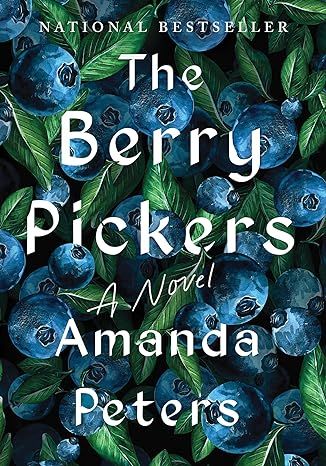
The Berry Pickers: A Novel
4.5
-
14,209
$14.99

Elon Musk
4.7
-
15,272
$16.99
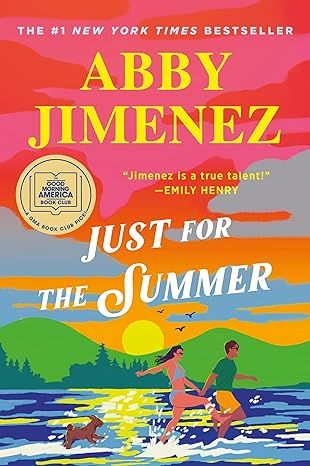
Just for the Summer
4.6
-
19,524
$11.99
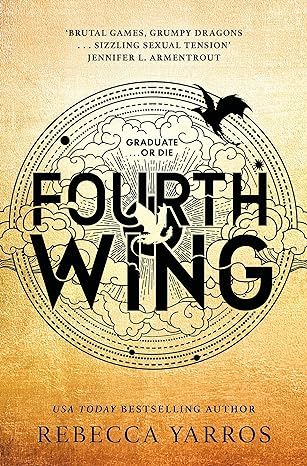
Fourth Wing (International Edition)
4.8
-
206,495
$7.95
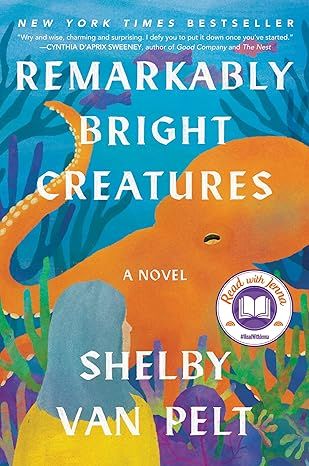
Remarkably Bright Creatures: A Read with Jenna Pick
4.6
-
65,556
$15.80
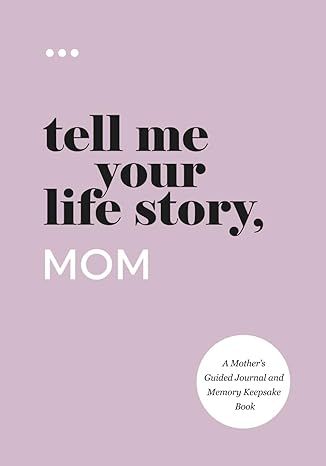
Tell Me Your Life Story, Mom: A Mother’s Guided Journal and Memory Keepsake Book (Tell Me Your Life Story® Series Books)
4.7
-
5,107
$11.24
